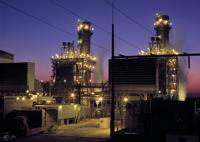Dominion Energy: Navigating Rate Increases, Renewable Goals, and Regulatory Challenges
Dominion Energy stands at the center of major conversations about energy supply, rate changes, and the future of clean power in the Southeast. For millions of customers in Virginia and beyond, updates from Dominion Energy signal bigger trends involving rates, regulations, and environmental responsibility.

Understanding Dominion Energy’s Proposed Rate Increase
Dominion Energy recently proposed a significant rate increase affecting residential customers across Virginia and other service areas. According to recent reporting from Cardinal News, the company seeks to adjust both its base rates and fuel factor charges. This adjustment could lead to an average monthly bill increase of over $21 for the typical residential customer, starting in 2027.
The utility argues that this increase will cover rising operational costs and fund ongoing improvements in service reliability. Dominion Energy is also introducing new rate classes for large energy users, including data centers, to better manage the high energy demand from these sectors. Public hearings and comment periods are currently underway, offering consumers a chance to voice their concerns or support for the proposed changes.
Regulatory Scrutiny and Public Involvement
As regulatory bodies like the State Corporation Commission (SCC) review Dominion Energy’s proposals, the role of public participation has become crucial. The SCC is hosting hearings to examine whether Dominion’s plans are fair and meet public interest standards. Consumers are encouraged to submit written comments or sign up to speak at hearings. These measures ensure that decisions around significant rate changes reflect both community input and regulatory criteria.
Long-Term Energy Planning: Renewables vs. Natural Gas
Dominion Energy’s long-term integrated resource plan (IRP) is another hot topic. The utility proposes a balanced energy mix, emphasizing about 80% renewables and carbon-free nuclear, with the remainder coming from natural gas. The Center Square reports that some environmental groups are challenging this approach, arguing it leans too heavily on fossil fuels and may not comply with the Virginia Clean Economy Act.
The Act requires utilities to deliver 100% carbon-free electricity by 2045. Critics warn that Dominion’s current plan, with continued investment in natural gas infrastructure, could lock the region into higher emissions and rising utility bills for decades to come. Supporters of the plan, meanwhile, emphasize the need for grid reliability and the challenges of meeting soaring energy demands, especially from fast-growing sectors like data centers.
Environmental Advocacy and Consumer Protections
Organizations such as Appalachian Voices and the Southern Environmental Law Center have testified against aspects of Dominion Energy’s resource plan. In their public statements, they advocate for a greater focus on truly sustainable sources—like solar, wind, and advanced battery storage—instead of further investment in traditional fossil fuels. Their position is clear: a cleaner, more affordable energy future is possible, but only if bold steps are taken today.
Staying Informed and Getting Involved
Dominion Energy remains a major player in the ongoing shift toward cleaner power and smarter energy pricing. For customers, being aware of proposed changes and understanding how to participate in the public process is essential. Whether you’re concerned about your utility bills or passionate about clean energy, staying informed helps you play an active role in shaping the region’s energy future.
To learn more or get involved:
- Read about how to comment on Dominion Energy’s rate proposals.
- Explore in-depth coverage of the SCC’s review of Dominion’s energy plan at The Center Square.
- Discover environmental perspectives on the plan at Appalachian Voices.
Conclusion
Dominion Energy faces big decisions as it navigates regulatory reviews, changing energy markets, and the push for a cleaner future. By staying engaged, customers and advocates can help ensure that these decisions lead to fair rates and sustainable progress for all.